This is also a good opportunity to look in a bit more detail than I did last year at the LibGuide that supports the inquiry, which was one factor that made it very easy to deliver online at fairly short notice. The guide has four main tabs:
1. A basic introduction to the topic
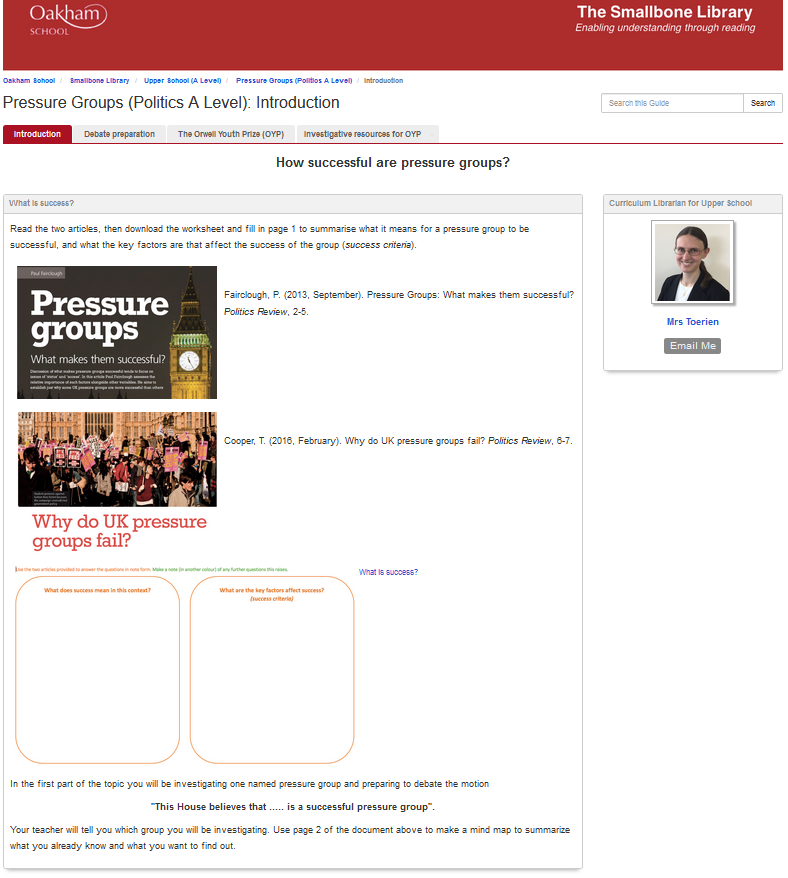
2. An introduction to the debate “This house believes that …. is a successful pressure group”, with note taking resources, search tips and advice on determining whether a source is appropriate (CRAAP testing). Students search for their own resources about their group, so this is the point in the inquiry most suited to developing information search and evaluation skills.
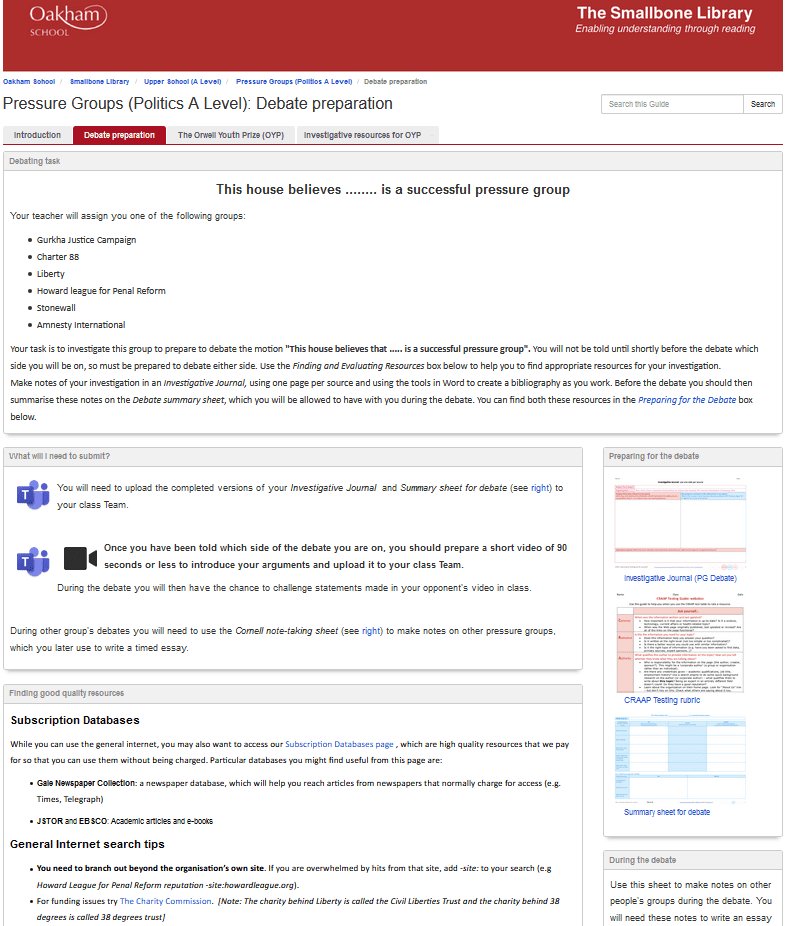
3. An introduction to the Orwell Youth Prize, explaining what students need to produce, giving information about the prize itself and giving students the resources they need both to plan their own articles and to work with other’s articles. The emphasis in this part of the inquiry is working with information and using it to develop arguments. To save time, students are not expected to find any of their own sources.
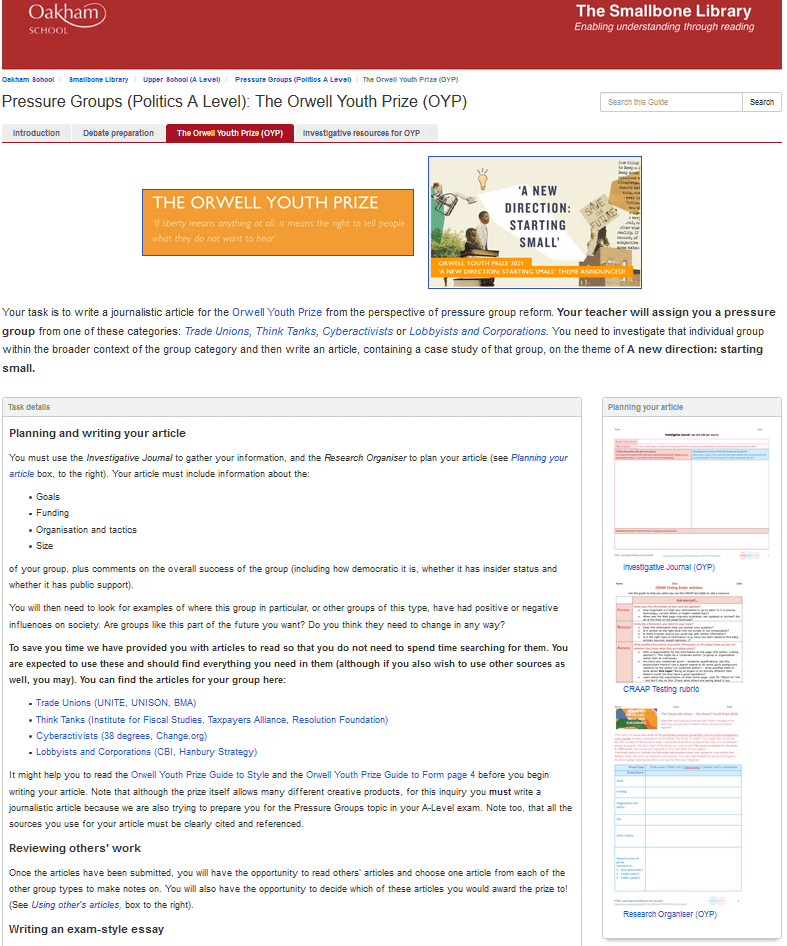
4. The last tab is actually a cluster of four – one for each type of pressure group looked at in this stage. Students are assigned to one type of group and then use the work of others to learn about the other types. These tabs have links to a carefully collated set of articles designed to allow students to critically evaluate the groups in question.
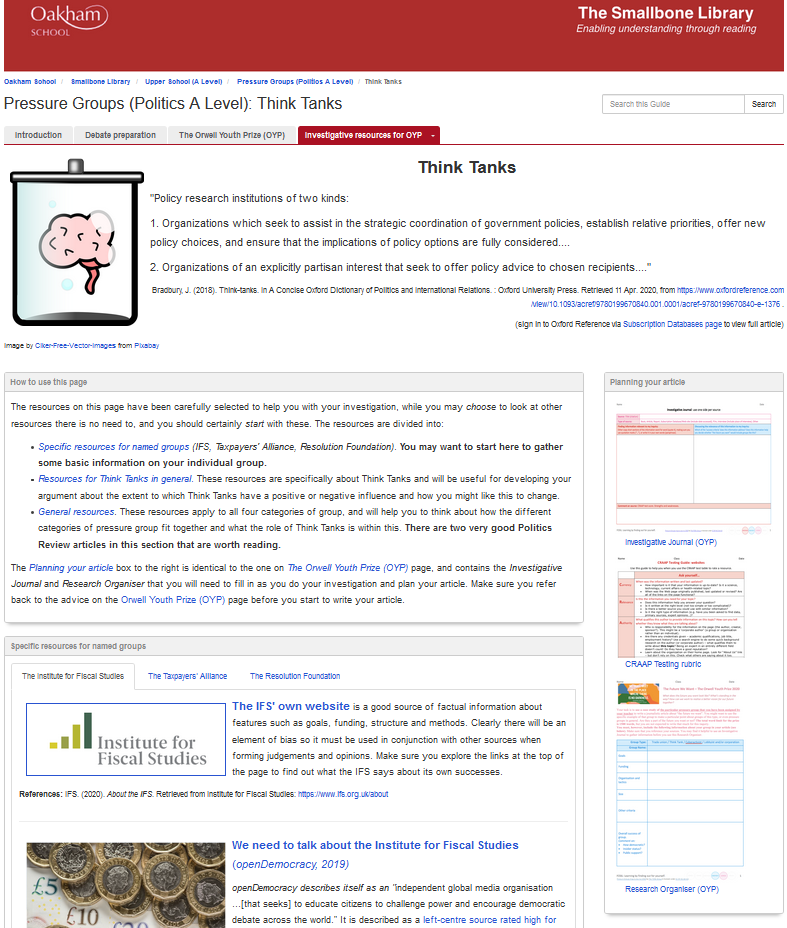
An important part of the presentation of the resources is the modelling of a very basic level of resource evaluation to encourage students to think about the source of their information as a matter of course.
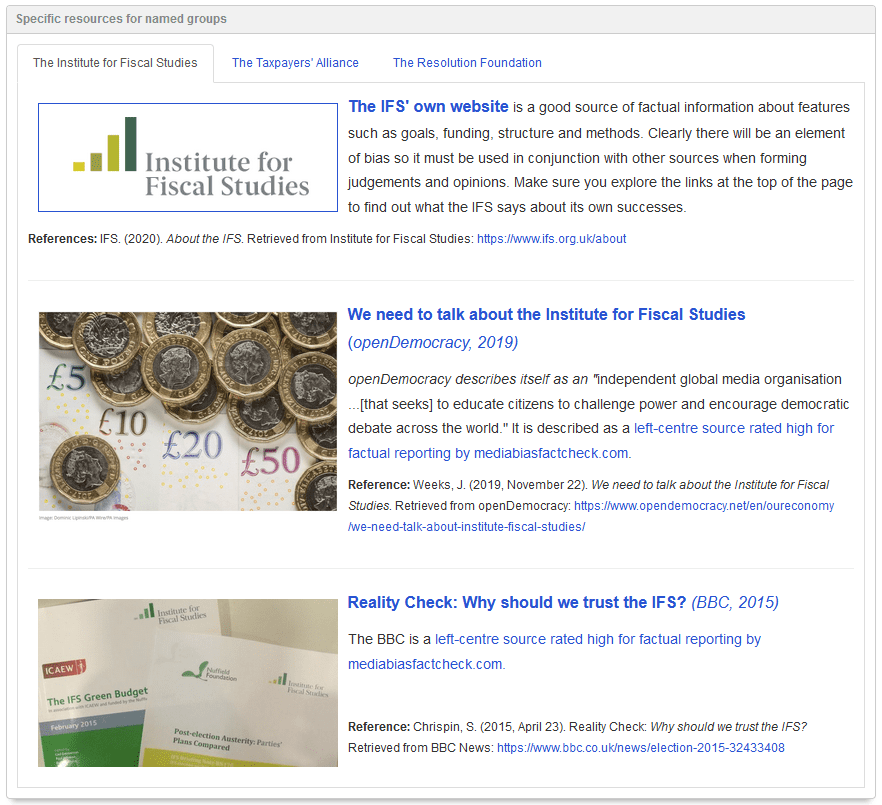
This is a technique I have recently used again in a LibGuide I produced for the Global Economic Governance A-Level Politics topic.
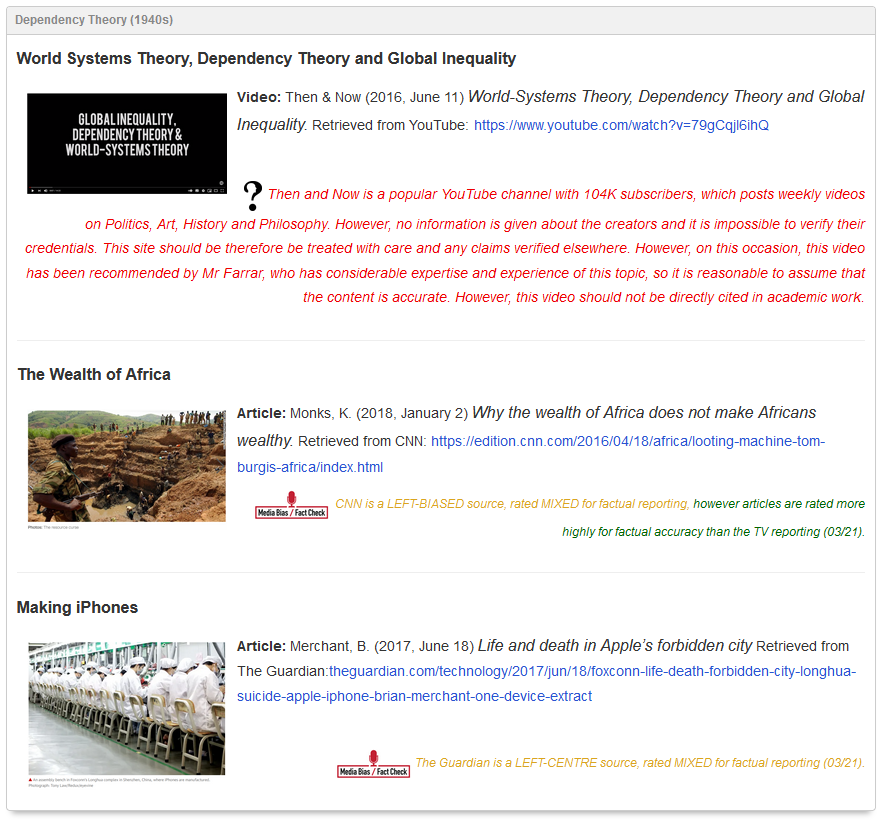
I think this kind of modelling is very important – as Librarians we are very used to providing curated sets of ‘trustworthy’ resources, but a step towards educating our students to locate such resources for themselves is explaining (in a relatively unobtrusive way) the merits and limitations of the resources we have curated.